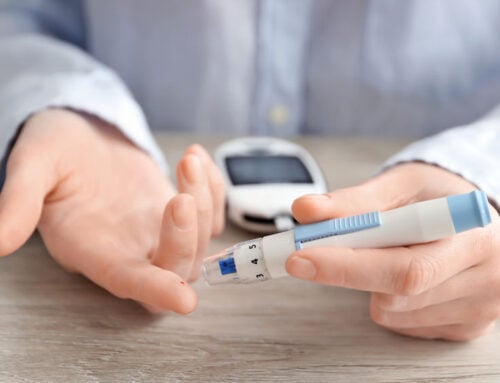An Important Test For People With Diabetes
In the last few years, the number of adults in the US with diabetes has increased. Recent data shows that over 30.3 million Americans have diabetes, with an additional 84.1 million with prediabetes. For those who are diabetic or prediabetic, monitoring blood sugar levels is crucial. How often should people with diabetes have blood sugar checked?

What is HbA1c?
The hemoglobin A1c (HbA1c) test checks average glucose levels over the past few months. People with diabetes need this test regularly to make sure blood sugar is staying within acceptable ranges. Typically, diabetics need the A1c test every 3 months.
Exceptions to the rule
If test results are good and the condition is under control, some people with diabetes may be able to get the test done less frequently. However, standard recommendations say that diabetics should get the test no less than twice per year. Patients should know that some factors can skew results of the HbA1c test, such as anemia, high cholesterol, or taking vitamin C or E supplements.
What to expect
The HbA1c test is not a fasting test, so patients can eat or drink normally beforehand. The test involves a simple blood draw through a finger prick or vein in the arm. If the blood is taken from a vein, results are sent to a lab for analysis. Through the finger-prick method, results are usually available the same day at the doctor’s office.
Interpreting results
The results of the test are shown as percentages. Higher percentages mean higher blood sugar levels and higher risk. For people without diabetes, normal ranges fall under 5.7%. For adults who have diabetes, aiming to keep A1c under 7% is typically a good target. Anything over 8% is considered diabetes that is not well-controlled.
Controlling your diabetes
In addition to prescribed medications, doctors may recommend some lifestyle changes for keeping diabetes under control. Some of these can include weight loss, exercise, and diet changes. For people with diabetes, monitoring carbohydrate intake to control blood sugar spikes is extremely important.
Ask a healthcare provider for recommendations
Uncontrolled diabetes can lead to a number of health complications. However, managing diabetes by regularly monitoring blood sugar and making some lifestyle changes can help to lower risk. Talk to a healthcare provider for recommendations regarding diabetes treatment and HbA1c testing.




